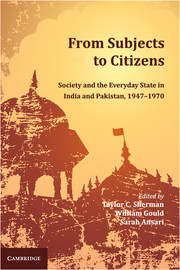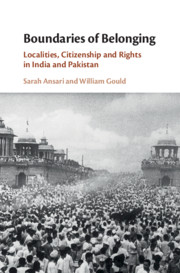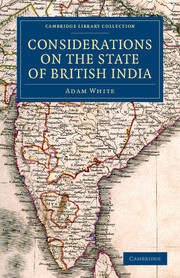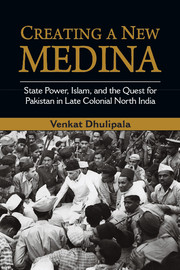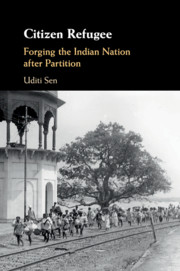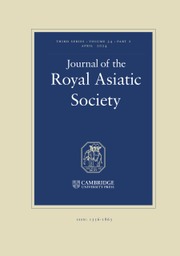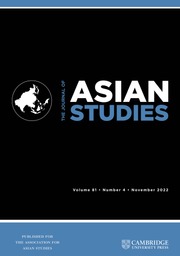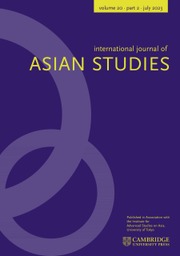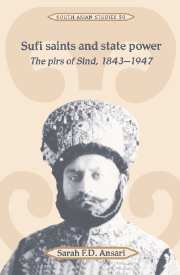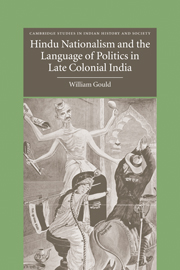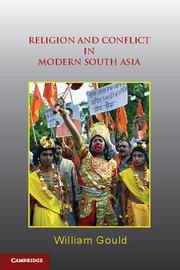From Subjects to Citizens
Society and the Everyday State in India and Pakistan, 1947–1970
- Editors:
- Taylor C. Sherman, London School of Economics and Political Science
- William Gould, University of Leeds
- Sarah Ansari, University of London
- Date Published: March 2014
- availability: Available
- format: Hardback
- isbn: 9781107064270
Hardback
Other available formats:
eBook
Looking for an inspection copy?
This title is not currently available on inspection
-
This book explores the shift from colonial rule to independence in India and Pakistan, with the aim of unravelling the explicit meaning and relevance of 'independence' for the new citizens of India and Pakistan during the two decades post 1947. While the study of postcolonial South Asia has blossomed in recent years, this volume addresses a number of imbalances in this dynamic and highly popular field. Firstly, the histories of India and Pakistan after 1947 have been conceived separately, with many scholars assuming that the two states developed along divergent paths after independence. Thus, the dominant historical paradigm has been to examine either India or Pakistan in relative isolation from one another. Viewing the two states in the same frame not only allows the contributors of this volume to explore common themes, but also facilitates an exploration of the powerful continuities between the pre- and post-independence periods.
Read more- Offers a timely perspective on early postcolonial South Asian history and poses fresh question about the nature of the state
- Explores the shift from colonial rule to independence in India and Pakistan
- Discusses Gandhi's assassination as a critical moment in the consolidation of the Nehruvian state
Customer reviews
Not yet reviewed
Be the first to review
Review was not posted due to profanity
×Product details
- Date Published: March 2014
- format: Hardback
- isbn: 9781107064270
- length: 258 pages
- dimensions: 237 x 159 x 12 mm
- weight: 0.5kg
- availability: Available
Table of Contents
Acknowledgements
Introduction Taylor C. Sherman, William Gould and Sarah Ansari
1. Personal law and citizenship in India's transition to independence Eleanor Newbigin
2. From subjects to citizens? Rationing, refugees and the publicity of corruption over independence in UP William Gould
3. Performing peace: Gandhi's assassination as a critical moment in the consolidation of the Nehruvian state Yasmin Khan
4. Migration, citizenship and belonging in Hyderabad (Deccan), 1946–1956 Taylor C. Sherman
5. Punjabi refugees' rehabilitation and the Indian state: discourses, denials and dissonances Ian Talbot
6. Sovereignty, governmentality and development in Ayub's Pakistan: the case of Korangi Township Markus Daechsel
7. Everyday expectations of the state during Pakistan's early years: letters to the Editor, Dawn (Karachi), 1950–1953 Sarah Ansari
8. Concrete 'progress': irrigation, development and modernity in mid-twentieth century Sind Daniel Haines
9. Partition narratives: displaced trauma and culpability among British civil servants in 1940s Punjab Catherine Coombs
Contributors
Index.
Sorry, this resource is locked
Please register or sign in to request access. If you are having problems accessing these resources please email [email protected]
Register Sign in» Proceed
You are now leaving the Cambridge University Press website. Your eBook purchase and download will be completed by our partner www.ebooks.com. Please see the permission section of the www.ebooks.com catalogue page for details of the print & copy limits on our eBooks.
Continue ×Are you sure you want to delete your account?
This cannot be undone.
Thank you for your feedback which will help us improve our service.
If you requested a response, we will make sure to get back to you shortly.
×
